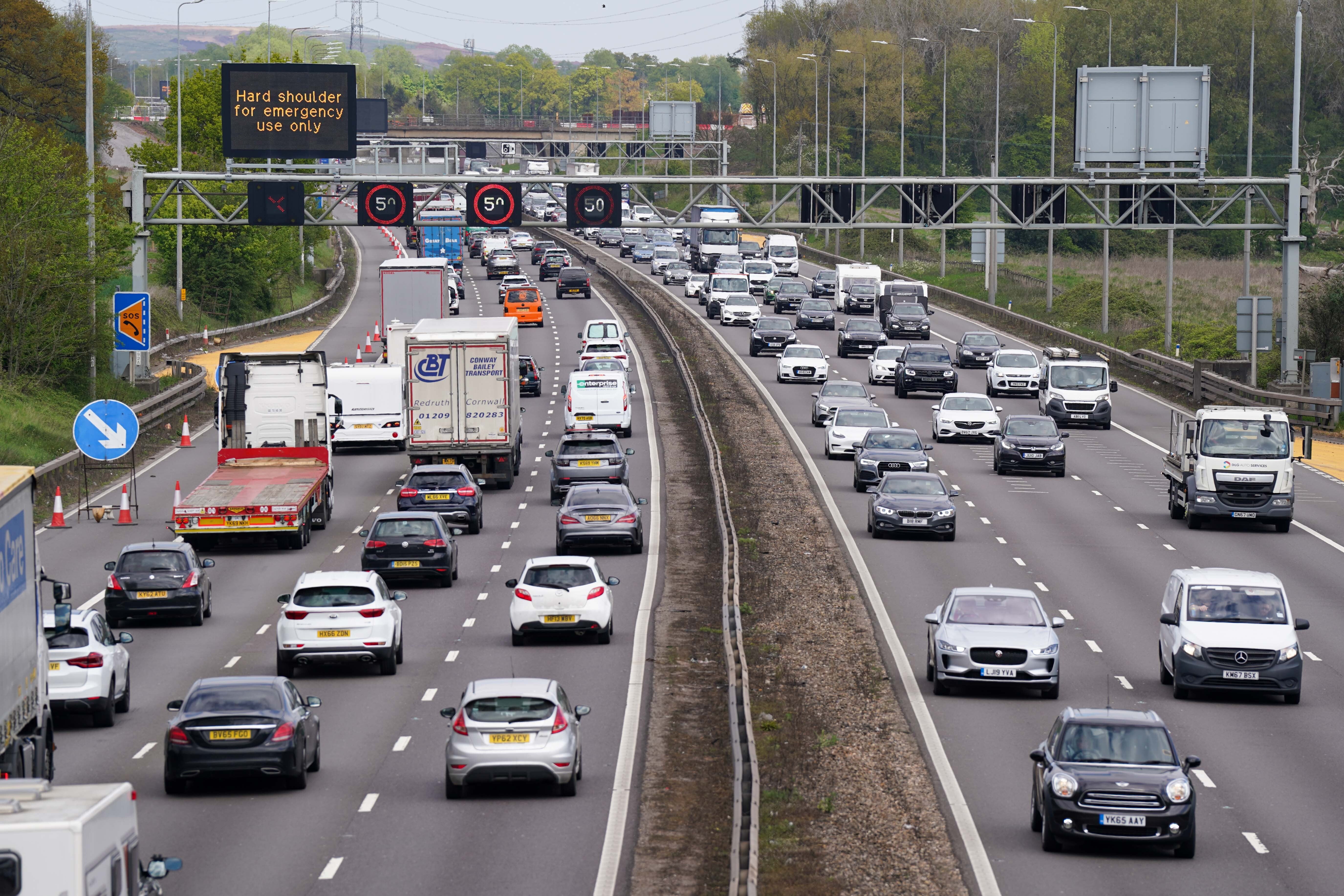Drivers suffer from rail strikes as affected passengers switch to cars
Cities across Britain saw a surge in traffic during the industrial action.

Your support helps us to tell the story
From reproductive rights to climate change to Big Tech, The Independent is on the ground when the story is developing. Whether it's investigating the financials of Elon Musk's pro-Trump PAC or producing our latest documentary, 'The A Word', which shines a light on the American women fighting for reproductive rights, we know how important it is to parse out the facts from the messaging.
At such a critical moment in US history, we need reporters on the ground. Your donation allows us to keep sending journalists to speak to both sides of the story.
The Independent is trusted by Americans across the entire political spectrum. And unlike many other quality news outlets, we choose not to lock Americans out of our reporting and analysis with paywalls. We believe quality journalism should be available to everyone, paid for by those who can afford it.
Your support makes all the difference.Rail strikes caused long queues on the roads as many switched from trains to cars.
There was a surge in traffic in cities across Britain on Tuesday.
Location technology firm TomTom said congestion levels at 11am were higher than at the same time last week in a number of urban areas.
They include London (from 38% on June 14 to 51% today), Cardiff (from 24% to 29%), Liverpool (from 24% to 30%), Manchester (from 27% to 34%) and Newcastle (from 18% to 20%).
The figures represent the proportion of additional time required for journeys compared with free-flow conditions.
There were also long queues on outer London sections of the M1, M4, A4 and A40.
AA president Edmund King told the PA news agency there were “traffic hotspots” on the M25 in the South East, and on roads near Manchester, Leeds and west of Glasgow.
The firm’s breakdown recovery workers have been “busier than normal but not dramatically”, he told the PA news agency.
“Given good notice of the strike, many people have planned ahead and either changed their plans or are working from home.”
RAC spokesman Simon Williams said: “We’ve seen a 5% increase in the number of breakdowns we have attended today compared to a normal Tuesday in early summer.
“This is no doubt due to the increased volume of cars on the roads brought about by a combination of the rail strikes and the good weather.
“We are expecting the ongoing disruption to lead to higher than usual demand for our services at the roadside this week.”